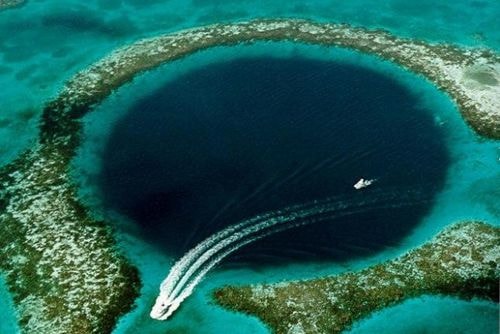Giant hole helps explain the collapse of Mayan civilization
Mineralogy at the giant blue hole in Belize suggests a prolonged drought may have led to the collapse of the ancient Maya civilization.
 |
| The Great Blue Hole in Belize, Central America. Photo: US Geological Survey USGS |
Mineral analysis of the giant blue hole (a large underwater cave whose entrance resembles a perfect blue circle) in Belize, Central America, suggests that the Yucatan Peninsula experienced a severe drought between 800 and 900 AD.
"It's like a big bucket. It's a sediment trap," UPI quoted expert Andre Droxler of Rice University, USA, as saying. Accordingly, the hole is like a funnel-shaped trap, depositing sediment, recording the geological and climatic past of the area.
In that climate, the Maya moved north. However, another severe drought followed, wiping out another tenth of what remained of the ancient Maya.
According to new research evidence, ancient droughts accelerated deforestation trends on the Yucatan Peninsula, as the Maya cleared more land for agriculture.
Between 300 and 700 AD, the Maya civilization dominated the Yucatan Peninsula, developing a fully developed writing system and making innovations in art, architecture, mathematics, and science. After a period of prosperity lasting four centuries, Mesoamerican civilization gradually declined into chaos and disintegration.
According to VnExpress






